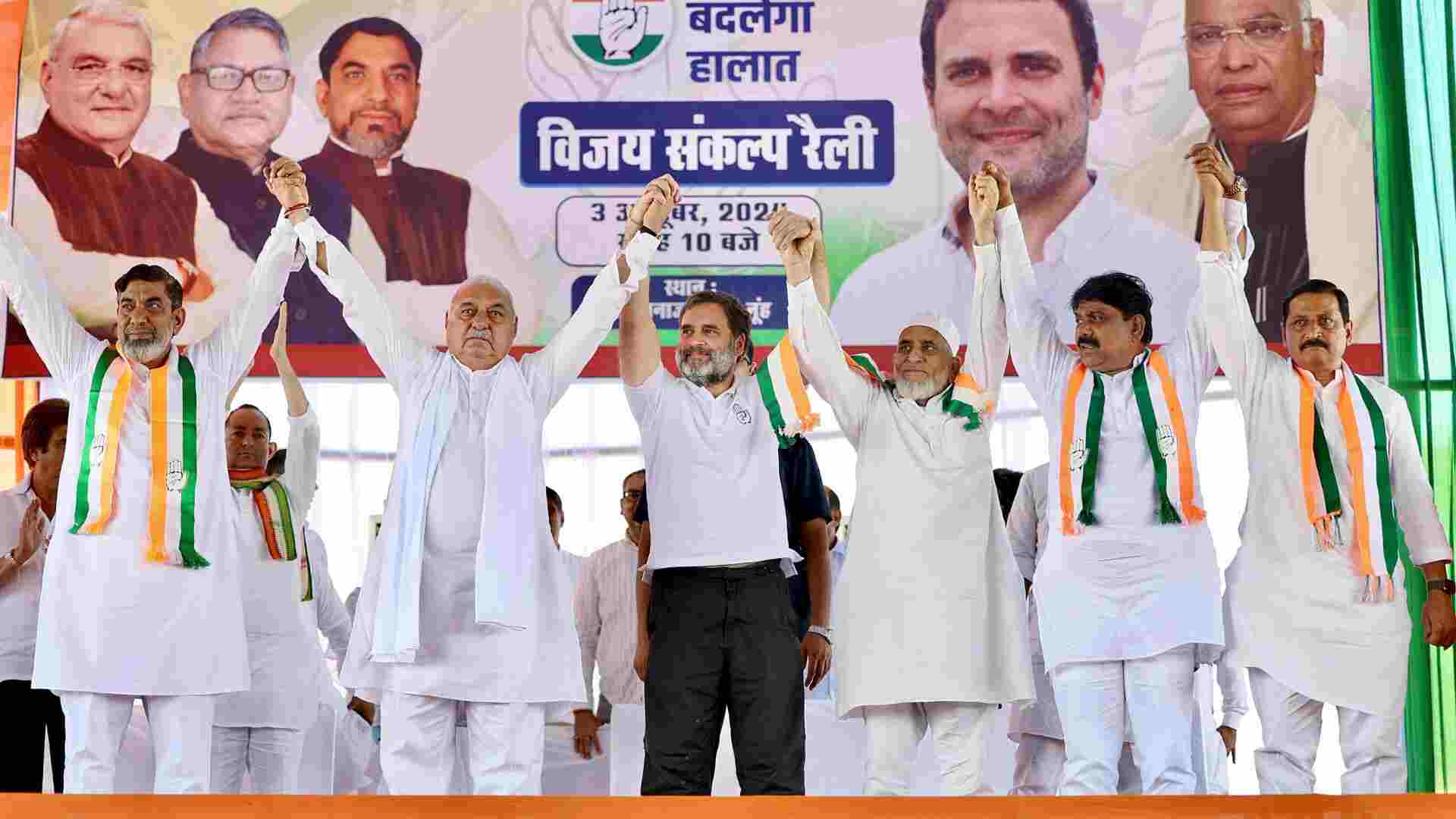Farmers’ discontent over farm laws and MSP remains pivotal. Congress’s focus on this, alongside caste politics, challenges BJP’s outreach efforts.
New Delhi: After the elections in Haryana, both the Bharatiya Janata Party (BJP) and the Congress are asserting confidence in their victory, with the final results set to be announced on Tuesday. These elections hold national significance as the outcome could influence the broader political landscape. While the BJP is pushing for a third consecutive term, Congress is looking to regain control in the state after a decade. A key element of this electoral contest is the shifting focus away from development issues towards caste-based politics, an area that Congress has exploited effectively.
During the campaign, the Rashtriya Swayamsevak Sangh (RSS) played an unusually prominent role, focusing on mobilizing BJP’s core voters. Despite this, traditional BJP issues like nationalism and patriotism, which were central in past elections, took a backseat. Topics such as the revocation of Article 370, the Ram Mandir issue, and even the surgical strikes barely featured in the BJP’s campaign.
This shift allowed Congress to dominate the narrative with its focus on caste-based reservations and farmer-centric issues, reflecting a strategic move to outmaneuver the BJP.
Farmers’ resentment, particularly in the context of the contentious farm laws and the prolonged protests, remains a critical factor. Congress leader Rahul Gandhi seized on this issue, showing support for the farmers’ movement and potentially fueling future unrest if Congress gains power.
The opposition’s emphasis on Minimum Support Price (MSP) and other farmer-related promises has resonated strongly, overshadowing the BJP’s infrastructure and welfare initiatives. Meanwhile, BJP has been attempting to counter Congress’s narrative by focusing on caste-based reservation issues and Dalit voter outreach, especially by highlighting alleged neglect within Congress ranks.
One of the BJP’s strategic errors was underestimating the impact of the farmer protests, which have left lasting damage on the party
As the results day approaches, it remains to be seen whether the BJP’s recalibrated strategy will pay off or if Congress’s caste-based focus will carry them to victory. Either way, the outcome will have profound implications for the upcoming elections in other states like Maharashtra, Jharkhand, and Bihar, where similar dynamics are expected to play out. The results in Haryana could shape the national political narrative for the months to come.

